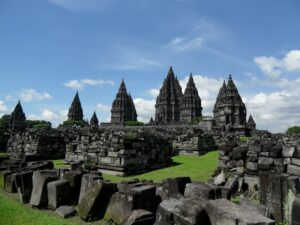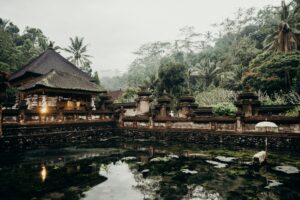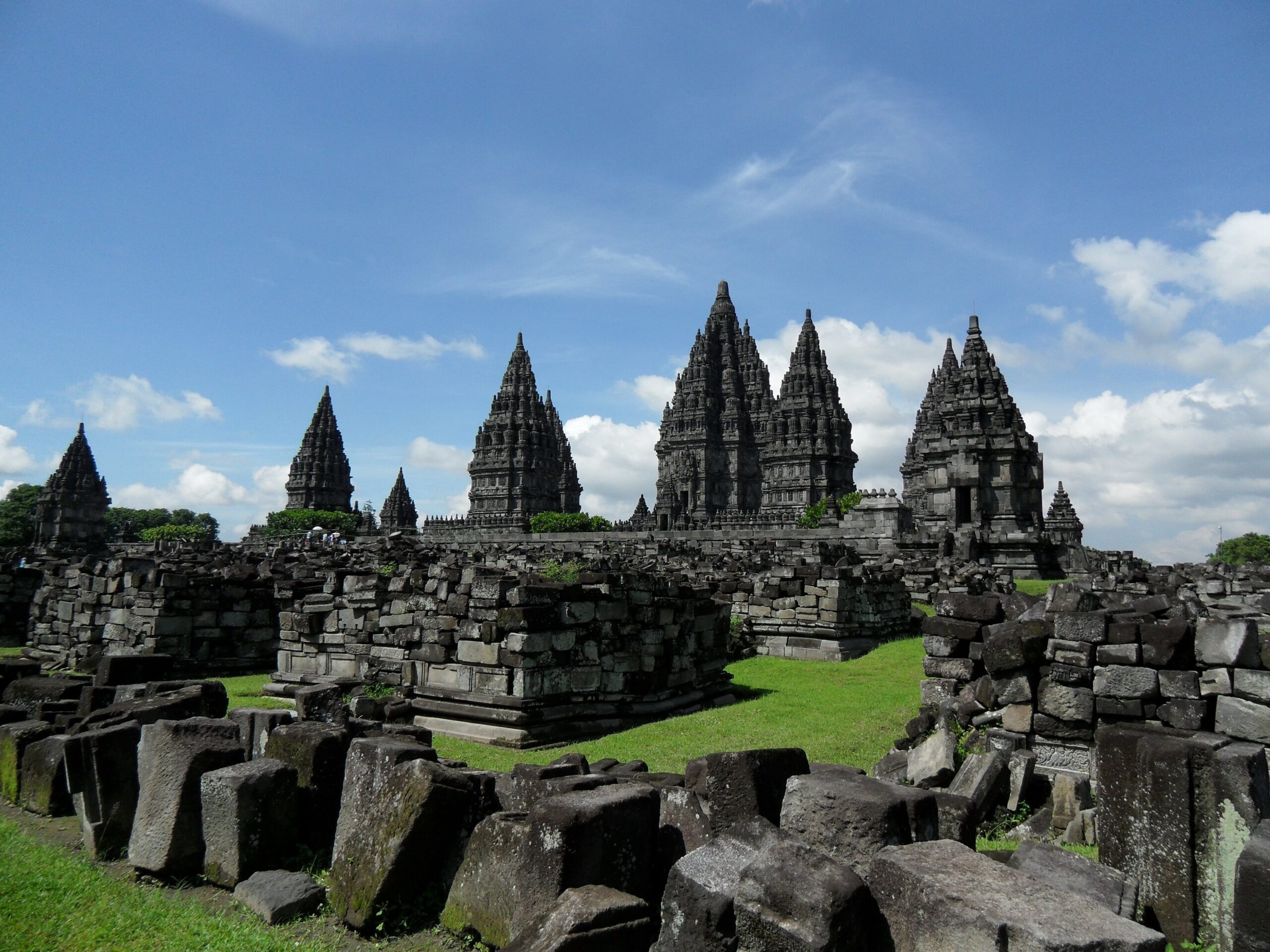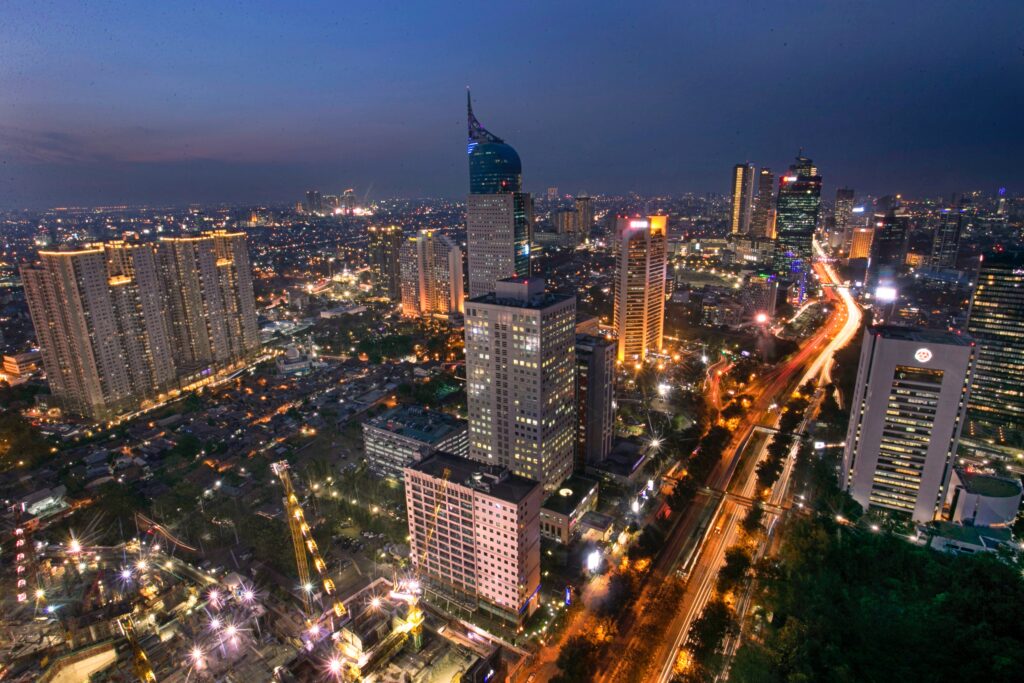Indonesia
Indonesia, the world’s largest archipelago nation, is a vast and diverse country located in Southeast Asia. Comprising over 17,000 islands, Indonesia is the fourth most populous country in the world, with a population exceeding 270 million people. The country is renowned for its rich cultural heritage, breathtaking landscapes, and significant biodiversity. As a nation of islands, Indonesia’s geography, history, and culture are as varied as the islands that make up this unique country.
Historical Background
Indonesia’s history is deeply rooted in its strategic location along ancient trade routes. The archipelago has been a crossroads for various cultures, religions, and empires for thousands of years. Early Indonesian kingdoms, such as Srivijaya and Majapahit, were influential maritime powers that controlled trade routes across the Indian Ocean and South China Sea, facilitating the exchange of goods, ideas, and culture.
In the 13th century, Islam began to spread through the region, leading to the establishment of Islamic sultanates that would dominate the archipelago. Indonesia’s rich history was further shaped by European colonization, beginning with the arrival of Portuguese traders in the early 16th century, followed by the Dutch, who established the Dutch East Indies as a colonial empire.
The struggle for independence began in the early 20th century, culminating in the declaration of independence on August 17, 1945, by Sukarno, Indonesia’s first president. After a prolonged period of armed struggle, the Netherlands formally recognized Indonesia’s sovereignty in 1949. The country has since transitioned from authoritarian rule to a vibrant democracy, with a rapidly growing economy and a dynamic society.
Cultural Heritage and Society
Indonesia’s cultural heritage is a mosaic of diverse ethnic groups, languages, and traditions. The country is home to over 300 distinct ethnic groups, with the Javanese being the largest. Bahasa Indonesia is the official language, serving as a unifying force across the archipelago, although hundreds of local languages and dialects are still spoken.
Religion plays a central role in Indonesian society. While the majority of Indonesians are Muslim, the country is known for its religious diversity, with significant populations of Christians, Hindus, Buddhists, and indigenous faiths. Bali, for instance, is predominantly Hindu and is famous for its temples, ceremonies, and vibrant arts scene. The island is a major tourist destination, attracting millions of visitors each year to its beautiful beaches, rice terraces, and cultural festivals.
Traditional arts and crafts, such as batik, wayang kulit (shadow puppetry), and gamelan music, are integral to Indonesia’s cultural identity. The country’s literature, dance, and architecture are also rich and varied, reflecting influences from indigenous traditions, Hindu-Buddhist culture, Islam, and Western colonization.
Indonesia celebrates its cultural diversity through numerous festivals and public holidays, such as Idul Fitri (the celebration at the end of Ramadan), Nyepi (Balinese Day of Silence), and Waisak (Buddha’s Birthday). These festivals are marked by vibrant processions, traditional music and dance, and communal activities.
Geography and Natural Beauty
Indonesia’s geography is one of the most diverse in the world, with landscapes ranging from tropical rainforests and active volcanoes to serene beaches and coral reefs. The country’s location on the Pacific Ring of Fire makes it prone to earthquakes and volcanic eruptions, but it also contributes to the fertile soils that support its rich biodiversity.
Sumatra, Java, Borneo, Sulawesi, and New Guinea are Indonesia’s five largest islands, each with its own unique environment and culture. Java, the most populous island, is the political and economic heart of the country, home to the capital city Jakarta as well as cultural centers like Yogyakarta and Surakarta.
Bali is known for its stunning beaches, vibrant arts scene, and spiritual culture, while Sumatra is famous for its rugged terrain, including Lake Toba and Mount Kerinci. Kalimantan (Indonesian Borneo) is a haven for wildlife enthusiasts, with vast rainforests that are home to orangutans, pygmy elephants, and other rare species.
Indonesia’s marine biodiversity is unparalleled, with the Coral Triangle being one of the world’s most important areas for marine life. Raja Ampat, Komodo National Park, and Bunaken are among the top diving destinations globally, attracting divers from around the world to explore the vibrant coral reefs and diverse marine species.
Economic Growth and Challenges
Indonesia has one of the largest economies in Southeast Asia, driven by a mix of agriculture, manufacturing, mining, and services. The country is a major producer of commodities such as palm oil, coffee, rubber, and natural gas. It is also a leading exporter of coal and other minerals.
In recent years, Indonesia has experienced significant economic growth, with a burgeoning middle class and increasing urbanization. Jakarta, the capital, is a bustling metropolis that serves as the financial and business hub of the country. Other major cities like Surabaya, Bandung, and Medan are also key economic centers.
However, Indonesia faces several challenges, including income inequality, corruption, and environmental degradation. The country’s rapid development has led to deforestation, loss of biodiversity, and pollution, prompting the government to take measures to promote sustainable development and environmental conservation.
Indonesia is also an emerging player in the digital economy, with a rapidly growing tech sector and a young, tech-savvy population. The country is home to several unicorn startups, and its e-commerce market is among the fastest-growing in the world.
In summary, Indonesia is a nation of incredible diversity, both culturally and geographically. Its rich history, vibrant culture, and stunning natural landscapes make it a fascinating and dynamic country with significant influence in the region and beyond.
Posts
FAQ

Indonesia’s uniqueness lies in its vast archipelago, boasting diverse cultures, ancient traditions, and breathtaking landscapes, from pristine beaches to volcanic wonders.
Indonesian cuisine is incredibly diverse, featuring dishes like Nasi Goreng, Satay, and Rendang. Moreover, each region offers its culinary delights, reflecting a blend of local spices and influences.

Indonesia is generally a safe destination. However, like any other place, it’s essential to exercise common sense and be aware of local customs. Likewise, popular tourist areas are known for their warm hospitality and safety.
The best time to visit depends on the region. Generally, the dry season from May to September is ideal for most parts, but certain areas like Bali are enjoyable year-round. Check specific destinations for optimal travel times.

Must-visit attractions include Bali’s spiritual haven, Borobudur in Java, Komodo Island for its unique wildlife, and the stunning marine biodiversity in Raja Ampat. In general, Indonesia offers a blend of cultural, historical, and natural wonders.



